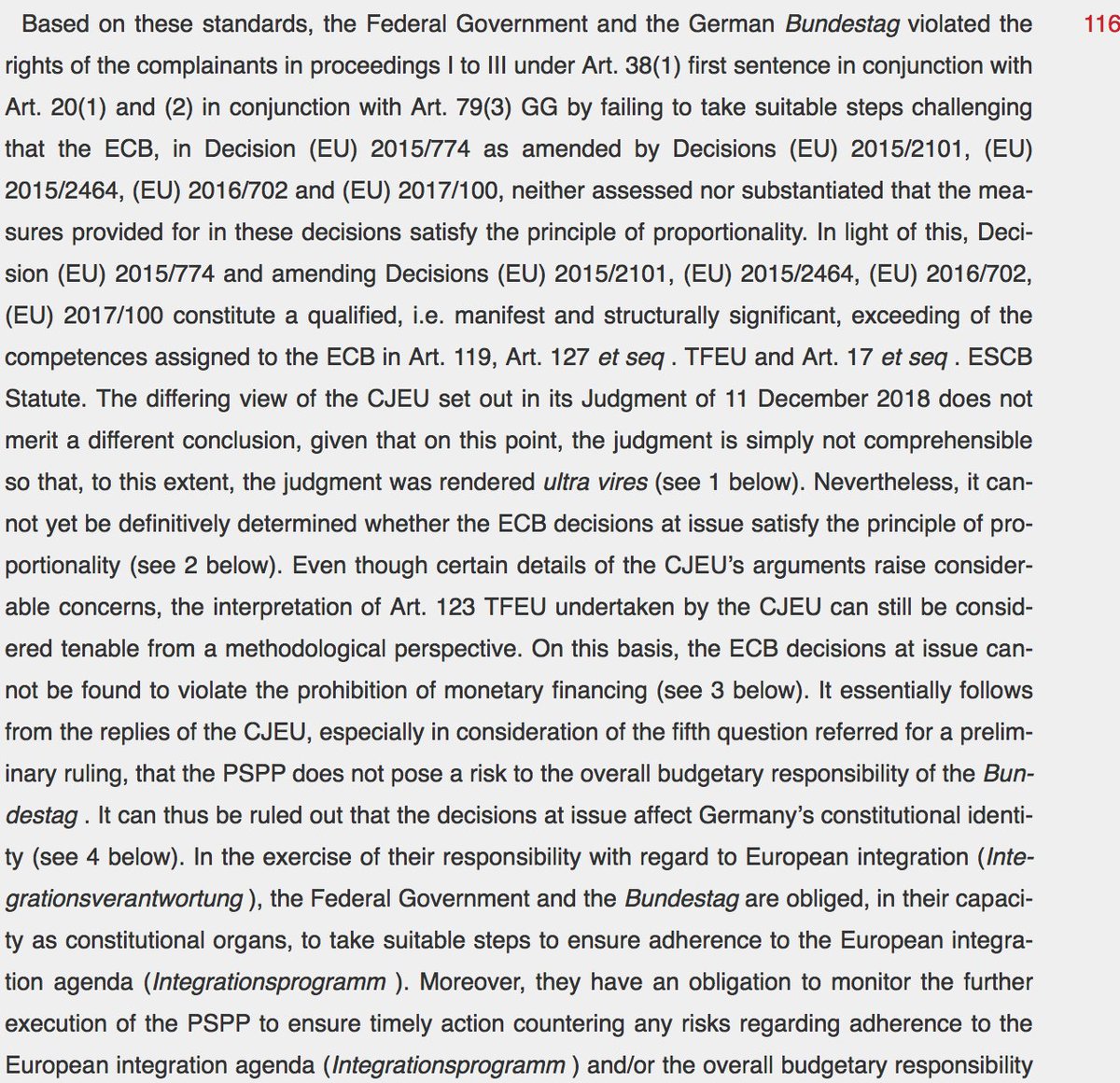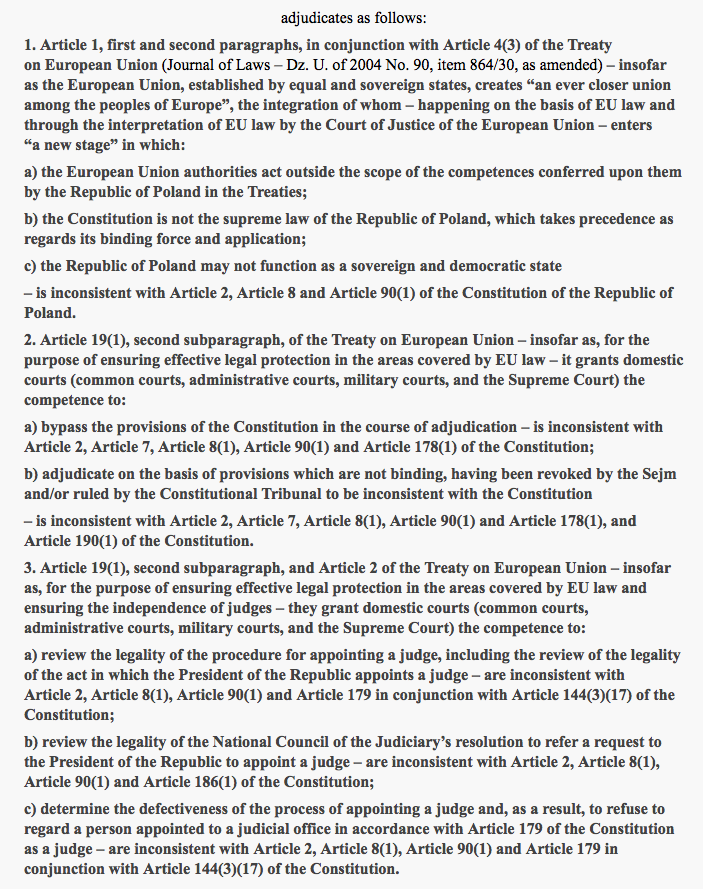
So here we go: Why Weiss and K 3/21 (the decision of the Polish Constitutional Tribunal) are - in law - fundamentally different. A thread. Even I hope it won't be a long one. (Thread)
Let's start with the caveats. First of all there's a ton of writing on composition of Polish courts and all that. This is not a thread about those issues. Others have written competently about that.
Second caveat: I do not read Polish, I have to rely on the translation provided by the Polish Court itself. I do not like the translation the BVerfG provides. I assume there will be problems with the Polish Court's translation, too. But let's assume the basics are ok.
You'll also notice that I know the German law much better than the Polish one, so I can refer to other German judgments, not Polish ones.
Next point and full disclosure: I have favored an infringement action against Germany for the Weiss decision.
There goes my hope of this not becoming a long thread. I haven't started. These were just disclosures and caveats. *sighs*
OK. Let's start with the Polish decision. Here's the English version on the Court's website trybunal.gov.pl/en/hearings/ju…
The court thus declares provisions of the Treaties as inconsistent with the Constitution of Poland. Core provisions: parts of Art. 1, 4(3), 19. It is worth looking at the "insofar" instances.
Among them insofar as the EU (…) enters a new stage in which: The Constitution is not the supreme law of the Republic of Poland, which takes precedence as regards its binding force and application.
Among them also the interesting phrase insofar as the EU … enters a new stage in which the EU authorities act outside the scope of the competences conferred … we'll get back to this.
There are other interesting instances in 2 and 3 relating to Art. 19. But I'll skip this or else I'll lose everyone.
The first "insofar" I mentioned reads like a full frontal attack on primacy of EU law over the constitution. Because the EU law doctrine of primacy says that EU law takes primacy over national constitutions as well.
So it's a judgment deciding that (to some extent) provisions of EU primary law are unconstitutional - and confirming the primacy of the Polish constitution as such over EU law. Correct me if the Polish version is clearer and does not say this.
Let's turn to Weiss. The first thing to note: It's a tad longer. Here's the link to the English version. bundesverfassungsgericht.de/SharedDocs/Ent…
What did Weiss do? First things first - and starting from the Court's holding: the decision declares the German Parliament and Government have violated rights by failing to take steps relating to decisions of the Governing Council of the ECB.
Or in short - Weiss relates to acts of EU organs. What does Weiss say in that regard? It says they acted ultra vires. Beyond the powers they get through the treaties.
The Court said that the ECB exceeded its competences under the treaties (interpreting them at length) and dismisses the different ruling of the CJEU. 

So while the Polish Court declares a provision of the treaties to violate the Polish Constitution, the German Court says that the ECB did not comply with the treaties and acted beyond the powers under the treaties - analyzing these powers.
The German court does not full-on dismiss primacy vis-a-vis the constitution (in fact, here's a citation from Europäischer Haftbefehl II in the Court's own translation). The Polish court does just that. 

In short - in law, these are utterly different decisions.
Some important additions: the Polish decision we have in English is ridiculously short. There's hardly any argument. Is that the whole thing? If so - hmph.
And then the ultimate issue: is the Polish Constitutional Tribunal still a Court? This issue is not based on this judgment - but on long-standing issues. See this thread
https://twitter.com/ProfKochenov/status/1451614716506296331?s=20
So - a quick answer here: this is a short version, the longer one will be coming. Thanks
https://twitter.com/marcinszwed89/status/1452378610011103236?s=20
• • •
Missing some Tweet in this thread? You can try to
force a refresh




